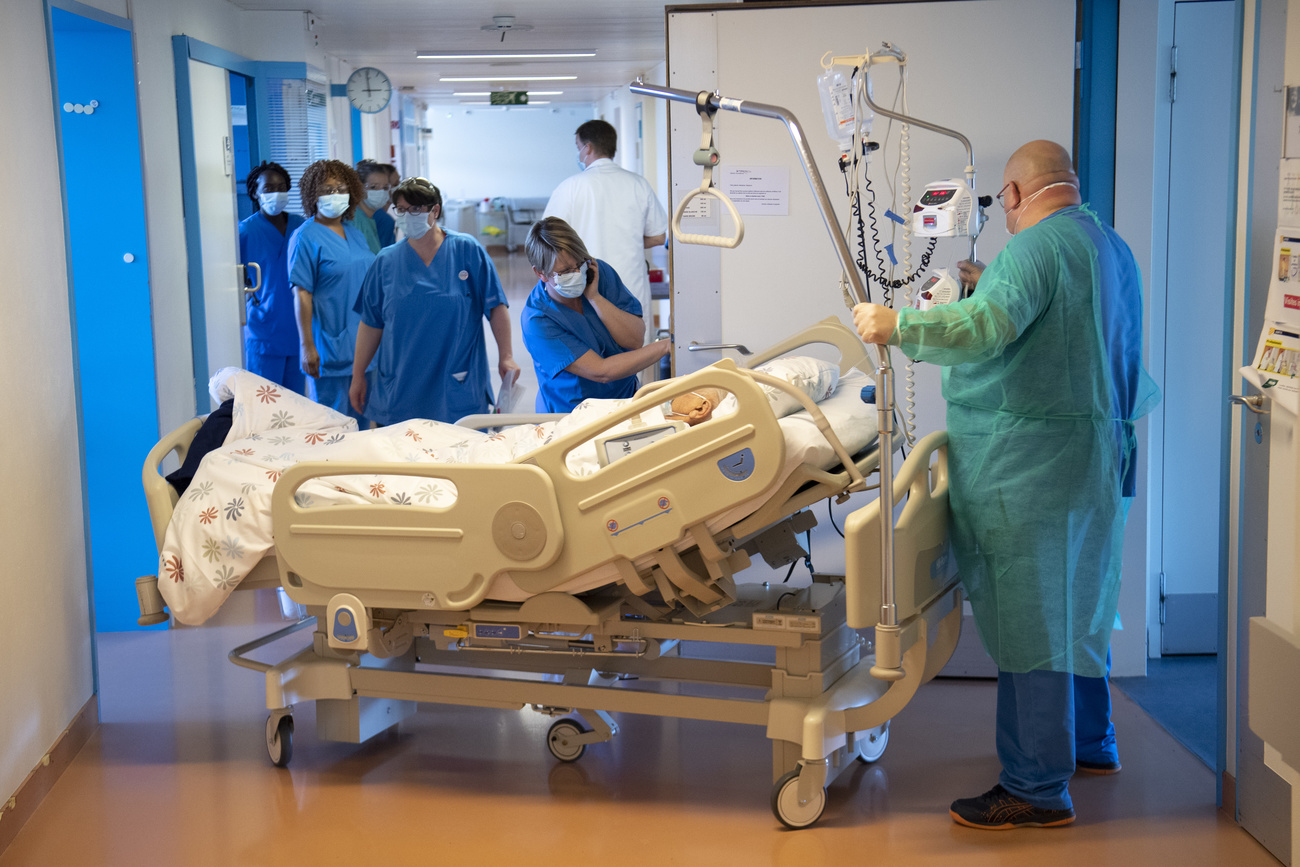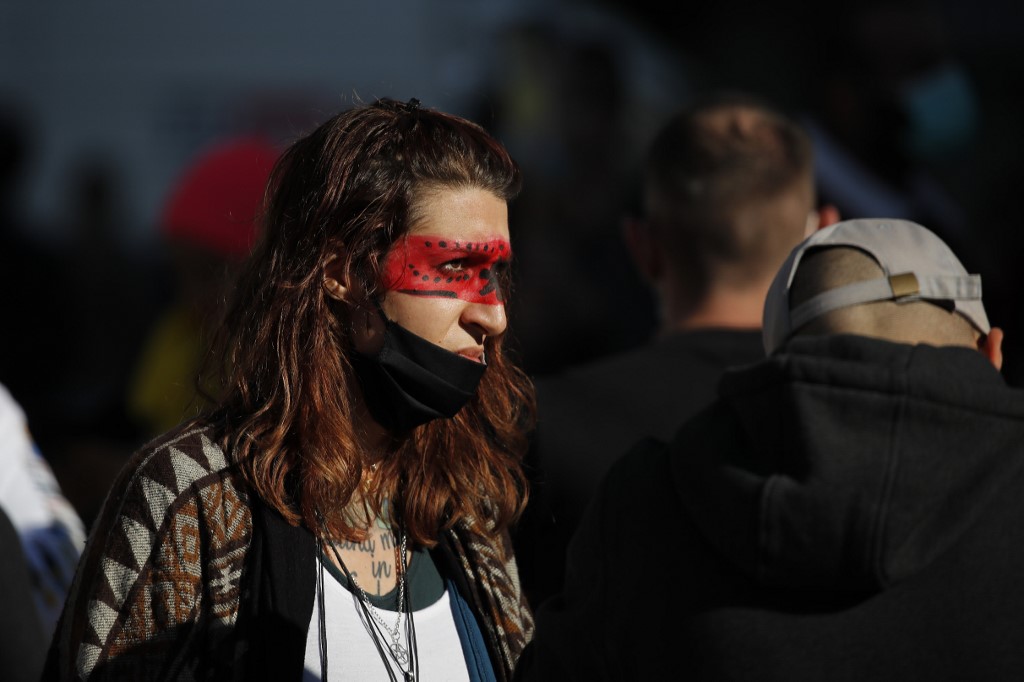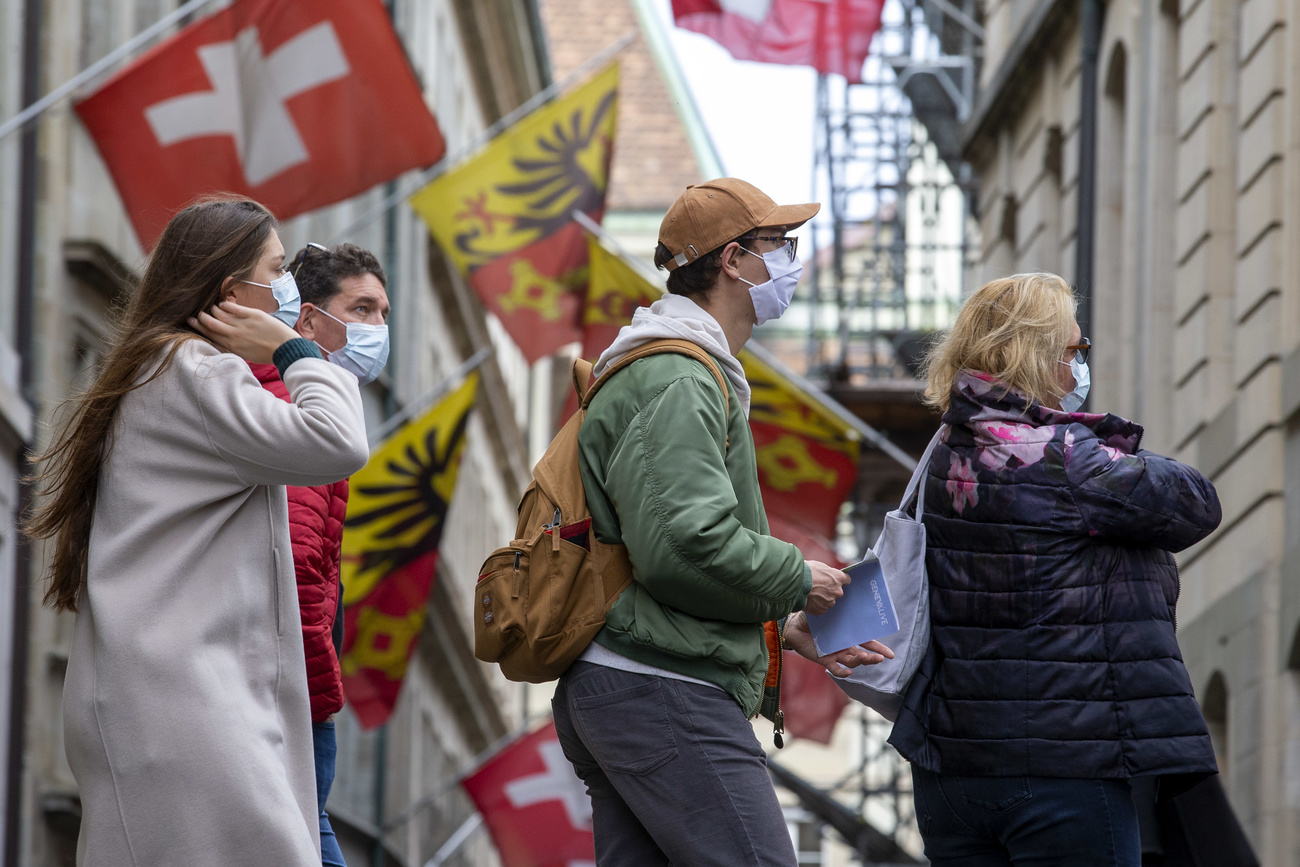Learning the lessons of Covid-19
Who’s doing best in the battle against Covid-19? Here in Europe the success we thought we had achieved back in the early summer now looks pretty shredded. Cases are rising, hospitalisations are rising, and deaths are rising.
Each country is trying to find a route through winter which will disrupt life as little as possible while still safeguarding health. There’s also a wish, as the UK’s Prime Minister put it, to “save Christmas”.
And each country has a slightly different approach. Here in Switzerland the government has opted for a “slowdown” rather than a lockdown. Neighbouring France has gone into another “confinement” with strict rules around movement. To our east, Austria is beginning a “hard lockdown”, with schools closed and a daytime as well as a nighttime curfew.
There is increasing debate, and confusion, about which measures are most successful. In most parts of Switzerland we can still go out for dinner. Our friends in France cannot. But since the introduction of the Swiss slowdown and the French confinement, cases of Covid-19 in both countries have begun to fall.
Sign up! The latest updates from International Geneva – in your inbox
Right answers
The World Health Organization (WHO) briefs the press on the pandemic twice a week, and not a briefing goes by without journalists asking about best practices for controlling and suppressing the virus. WHO officials invariably answer that knowing where the virus is, testing, tracing and isolating are key.
New Zealand is often cited as a country which has put that advice into practice in an exemplary manner; it appears to have virtually eradicated Covid-19. But here in Europe the example of New Zealand tends to irritate. “It’s all very well for an island of five million people way out there,” suggests one Swiss journalist I know. “Not so easy for a country in the centre of Europe, economically dependent on open borders with its neighbours.”
And although New Zealand can happily offer its citizens all sorts of freedoms (bars, restaurants, parties, sporting events) that we in Europe can only dream about, New Zealanders can’t travel outside their country. A friend in Wellington wrote recently that the bars of what he called “our golden cage”, were beginning to chafe.
Asia too has received praise for its handling of the pandemic. The memory of SARS back in 2003 is still fresh, and governments in Japan, South Korea, Singapore and Vietnam acted quickly, while here in Europe we tended to dither.
Complacency?
Are we too complacent in Europe? Is our memory of controlling infectious diseases now fading? I suspect my grandmothers, one of whom lost two siblings to diphtheria, would have taken the current pandemic – and the advice to stay home, keep a safe distance, and wash hands – very seriously. Or are we so confident in our modern health systems that we think we don’t have anything to learn, in particular from countries we tend to view as less advantaged than our own?
Those questions were brought forcefully to my attention at a recent WHO Covid-19 briefing, where we were treated to an explanation from a doctor in Sierra Leone about what had been done there to control the virus. A country with a fraction of the health resources of Switzerland, France, or Austria, but with tried-and-tested strategies for infectious disease control, honed in the battle against Ebola, seems to have hammered Covid-19. At the time of writing, Sierra Leone has no new local cases.
Listening to that, I tweeted what I thought was a fairly uncontroversial suggestion that perhaps Europe had a “painful” lesson to learn from Africa. The response was astonishing: hundreds of retweets and likes, and all sorts of interesting comments, ranging from astonishment from Africa that Europe is doing so badly, and irritation from African health professionals at the assumption that there is nothing to be learnt from Africa.

More
Inside Geneva: Lessons from Africa on containing Covid-19
Learning from Africa, then, is the topic for our latest Inside Geneva podcast (click on teaser above), and it’s a fascinating discussion. Lata Narayanaswamy, Associate Professor in Global Development, was one of the first to respond to that tweet, and in the podcast she challenges our stereotypes. “We see Africa as the place where diseases start, from where diseases spread,” she told me. “Then aligned with that is the sense that Africa is very poor and, by extension, can’t really look after itself without Western intervention. There is a colonial legacy there.”
Ngoy Nsenga, who leads the WHO’s Covid-19 response across Africa, joins us too. He has become somewhat weary of the speculation about why cases of the virus are lower in Africa than in Europe and North America, in particular the suggestions that it is all down to a younger population, a more rural lifestyle, or better immune systems because Africans have been exposed to more infectious disease. Perhaps they are factors, but citing them implies that African health systems have had no role to play.
“We should look at what we actually did,” Nsenga said. “Many African countries took action very early in the pandemic, while some had very few cases, or even none.”
And Colleen Daniels, a South African with long experience in public health (she has worked in TB and HIV/Aids prevention strategies) is also determined to challenge the global north’s perception that when it comes to health, Europe gives and Africa receives.
“Where does all the technical assistance [during health crises] come from?” she asked. “Europe and North America. In Africa during Covid there was no technical assistance – they did it by themselves. And yet we’re still going to have this argument about it’s the age of the population, it’s rural versus urban instead of saying ‘actually they have the expertise and didn’t need you at that time’.”
Do tune in – it’s an illuminating and humbling conversation, and the issues addressed are ones I at least am convinced we absolutely must take on board to prepare ourselves for future pandemics because, as the WHO constantly reminds us, they are inevitable.

In compliance with the JTI standards
More: SWI swissinfo.ch certified by the Journalism Trust Initiative














You can find an overview of ongoing debates with our journalists here . Please join us!
If you want to start a conversation about a topic raised in this article or want to report factual errors, email us at english@swissinfo.ch.